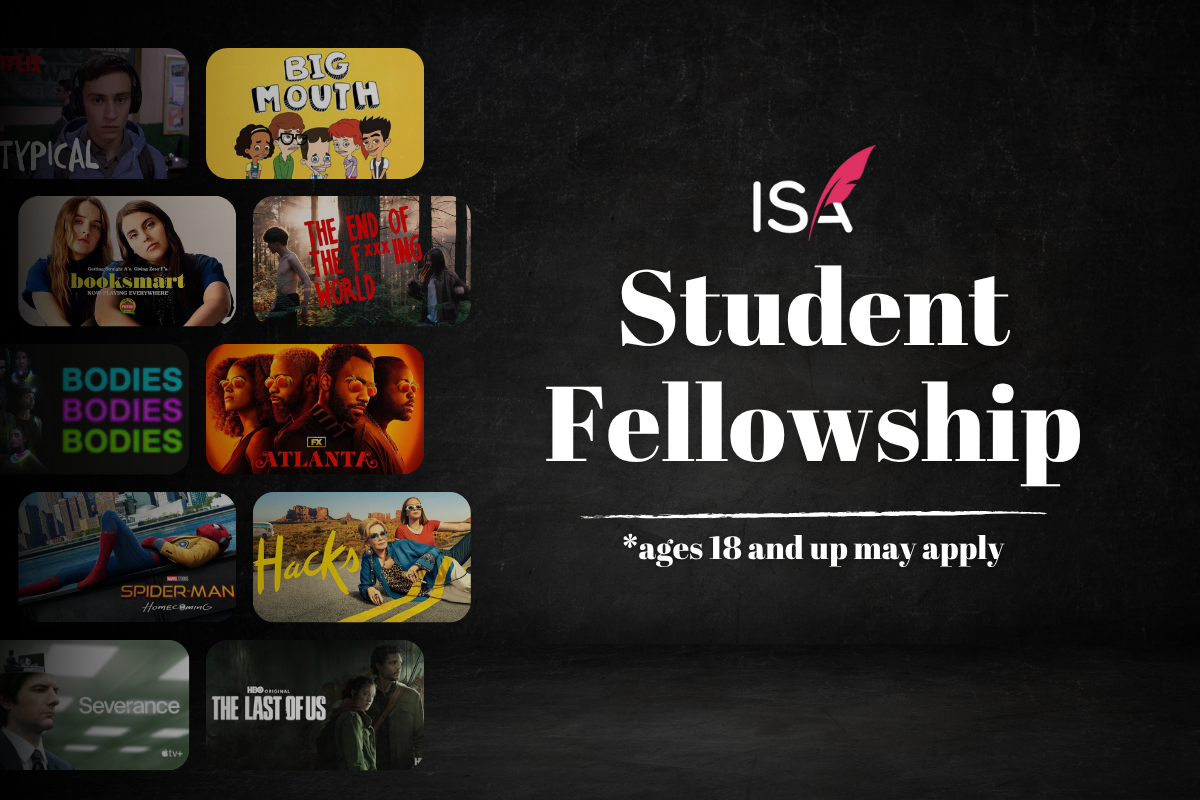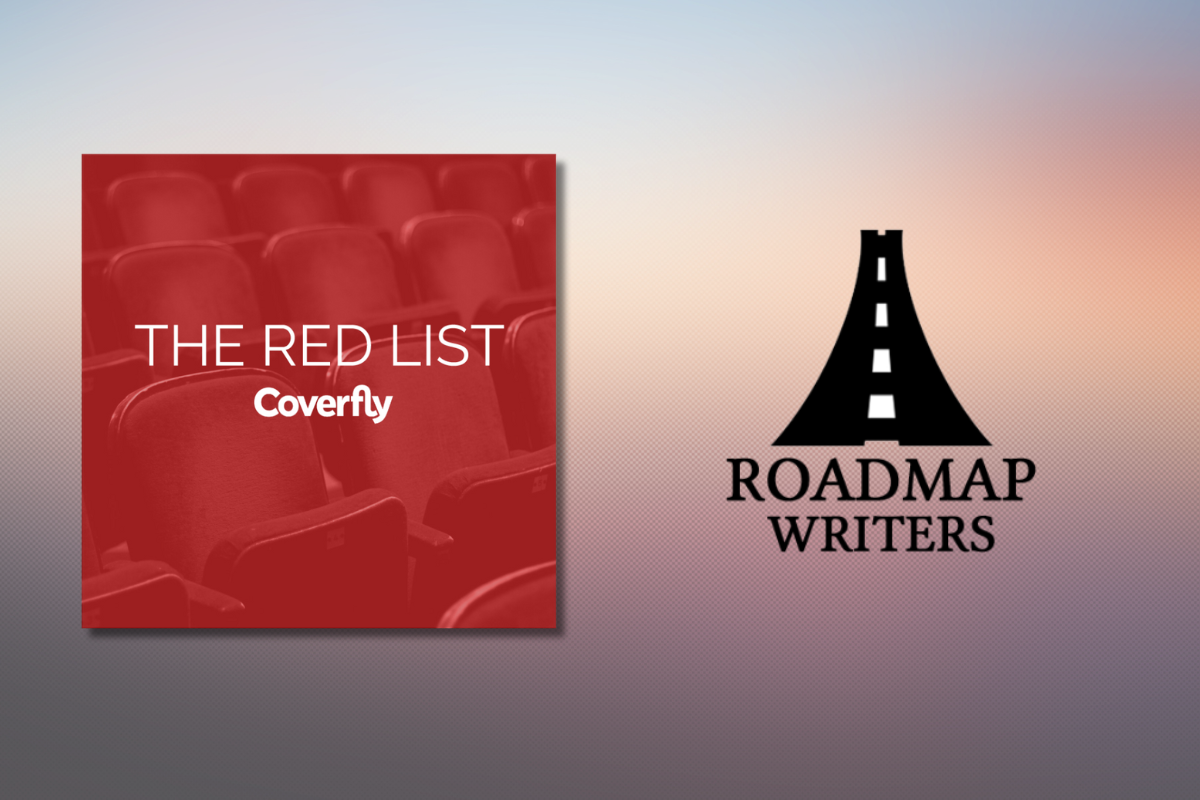PART I: What Is the Writer’s Voice, And Why Is It Important?
In this three-part series, TV writer/screenwriter Aadip Desai, will dig into the concept of a writer’s voice and see if he can make more sense of it for all of us. Of course, this applies most to emerging writers (not young) and those who have broken in but are still developing their voices.
Screenwriters and TV Writers hear the same advice ad nauseam from Hollywood gatekeepers - the most important quality a writer can possess is a distinct or unique voice. In this three-part series, I will dig into the concept of a writer’s voice and see if I can make more sense of it for all of us. Of course, this applies most to emerging writers (not young) and those who have broken in but are still developing their voices.
Part 1: What is the writer’s voice, and why is it important?
Part 2: How do you develop your voice and know that it is unique?
Part 3: How do you apply your voice to multiple projects or genres?
I know what you’re thinking—another freaking article on the writer’s voice. I know, I know. Here’s the thing. I’m going to talk about things differently and in ways, people generally don’t say about VOICE! So I’ll use voice to talk about voice, which feels very Inception-y.
And who am I to tell you about voice? How rude! Read my bio!
One caveat, I hereby invoke Bill Goldman’s adage, “Nobody knows anything.” So please take all of this with a grain of salt. The information is for you to consider but not prescriptive in any way.
WHAT IS THE WRITER’S VOICE?
The writer’s voice is a topic of much confusion amongst us--like bolding sluglines or the oxford comma. You might be asking, “How do I know if I have a unique voice? or “How can a potential rep sense that I have a distinct voice if they’re reading my script on their phone in the Arby’s drive-through?” I don’t know. That’s an incredibly specific question.
Since I came from the music world, I find it apt to compare a writer’s voice to a musician’s “sound.” When a musician has a distinct sound, you know exactly who they are from the first note or phrase. Likewise, if you have a distinct or unique writing voice, it will be evident in the first 10 pages if not on page 1. The writer’s voice sets up what type of journey we will go on and the style in which we will travel.
One’s sound amalgamates their tone, technique, stylistic characteristics, harmonic choices, even their regional background. For example, let’s examine unique trumpet players Miles Davis and Louis Armstrong, both of whom created paradigm shifts in jazz and the trumpet itself. Miles’ sound is dark, mysterious, airy, and he experiments with both technique and harmony. Louis’s powerful sound is cheerful, open, bright, and he stays close to the melody.
And of course, singers MUST have a voice of their own. Nobody would confuse Beyonce with Mariah Carey. Both singers are agile vocal acrobats with incredible control and a vast vocal range. Beyonce has that smoky Southern grit in her voice while using vibrato and growls across her 3.5-octave range. Mariah Carey effortlessly transitions from one register to another, from her dark and heavy lower register to the “I can talk to dolphins” upper register of her 5-octave range.
And for those of you who have never heard sound before, I liken it to a painter’s style, including their brushstrokes, types of paint, color, canvas/scale, perspective, subject matter, etc. A Jackson Pollock painting would never be confused with a Picasso.
A distinctive voice is a result of seamlessly combining the following:
- YOUR POV: Your perspective on the world, how you see it, and how your background influences the types of stories you tell and what your characters say and do.
- YOUR STYLE: This is a craft conceit, which includes tone, diction (word choice), syntax (how the words are used), sentence structure, descriptions, how you write action, the style of dialogue, punctuation, use of metaphor, breaking the fourth wall, magic realism, etc. It does not include emojis as of now.
- YOUR THEMES: The common themes that come up in your work, regardless of genre. It is what you’re trying to say about the human/animal/robot/alien experience.
In the same way, you’d never mistake Mariah for Beyonce or vice versa. You’d have the same response reading script pages of two of the most respected writers in the business. For example, Shonda Rhimes and Phoebe Waller-Bridge have vibrant, provocative voices that use monologues and rapid-fire dialogue while transcending genre or format.
Here’s where the magic happens.
For this article, I randomly flipped to a scene in the pilots for Scandal and Fleabag because the voice is consistent and clear no matter where you drop in. I ended up rereading both pilots because they are that good. (Also, check out I MAY DESTROY…so good.)
Here’s a little excerpt from Shonda’s Scandal pilot:
With 9 lines of dialogue, Shonda deftly hints at a history between the characters, establishes the high stakes, and illustrates the strength of Olivia’s character. And you can feel Shonda’s voice behind it.
Here’s a little excerpt of Phoebe’s Fleabag:
In Fleabag, Phoebe efficiently paints a picture of this sibling relationship as fraught and deep, followed by a moment of softness, then wham ends on that elegant crassness.
Voice is the result of incorporating a unique mix of perspective, approaches, and skills until a singular voice emerges. You want to get to the point where anyone who reads your script, regardless of genre or format, should feel, nay, know it’s your work. Nay – that’s a thing I would totally write. VOICE! Boom.
WHY IS A WRITER’S VOICE SO IMPORTANT?
Why do we hear this refrain so often? Voice is essential to hook your reader, keep them engaged, and ultimately, for us, get to represent us, hire us to develop, buy our pilot/feature, put us up for an OWA (Open Writing Assignment), and of course, staff on a TV series.
Specifically, how does this work?
- Voice is a massive part of your brand, if not your whole brand!
- Voice makes your script feel more individualistic, makes it cut through the noise of the PILE (pdf or 80lb paper), and wakes up the reader.
- Voice shows that you are a dynamic storyteller. Nobody else sees the world quite like you and that it is entertaining!
- Voice shows that you are in command of the story, that the reader is in good hands, and you will sustain the mood throughout the read.
How does one’s voice work with staffing?
I recently spoke with several showrunners who reiterated that having an original pilot script that matches or compliments the voice of their show (and possibly specific characters) is key in getting considered. But, unfortunately, they don’t have time to teach you the voice. You either have it, or you don’t. It’s like when Primus leader/bass player Les Claypool tried out for Metallica. He’s excellent, but he has his own thing going, and that thing ain’t Metallica.
I know you’re asking, how can you have a unique voice but still match the tone of a show you wanna write on? That’s the tricky part. You need to know which samples best match the tone of the show you’re up for. It’s OK to send something that’s not a perfect fit but know that it will be that much harder.
But the way I see it, your voice will function as part of a blend of other voices, like your sound within an orchestra. You have to breathe as one, attack as one, have a specific function, but your goal is the same, to move the audience as one.
And finally, here are some shitty things related to voice that you only hear in hushed circles at spin class or Soho House and which are mostly out of your control.
- If readers don’t like your voice, it basically doesn’t count. That seems obvious. Tone-deaf singers don’t have many fans. I really mean that a unique voice may not appeal to everybody, which boils this down to taste.
- For development, if you and another writer have a similar voice/style, but they broke in first, you might be seen as derivative. Except for staffing, then it could be a plus. Who knows? Bill Goldman.
- If you approach a manager or agent, and they have a client with a similar voice (and let’s face it, ethnicity x genre), it is unlikely that they will represent you. They don’t want to cannibalize their own roster. Of course, they won’t tell you that, but it’s happening.
- And here’s the biggie because it is the ONE THING you can control! Even if you have a strong, unique, distinct voice, if it is applied to the wrong project, or to a weak premise, or to a poorly executed idea, or TV series with an underpowered story engine, it won’t matter! So you have to make sure you work hard to get this part right. Apply your voice to the right project, and make it as undeniable as possible. I bristle at the word undeniable because people say it all the damn time. I deny undeniable. See?
When any of these are in play, you get to hear, “The writer has a unique voice, but I didn’t connect with the material.” Or “The material didn’t resonate with me. Good luck with your career… but if you get famous or powerful, I reserve the right to pretend this never happened and kiss your ass.” That’s if you get a response at all. They all mean, “I don’t like this writer and/or the script.” Damn!
To sum up, your voice differentiates you from other writers. It includes all of the elements that make you unique and distinctive. Tune in next time for Part 2: How do you develop your voice and know it is unique? Good luck!
Learn more about the craft and business of screenwriting from our Script University courses!
Aadip Desai is Indian American TV writer/screenwriter and doer of writing-adjacent things. While a Staff Writer on THE GOLDBERGS (a show about yelling), he wrote episode 150, which earned him a spot in the inaugural class of BAFTA Breakthrough USA. He’s also written on MIRA, ROYAL DETECTIVE for Disney Junior, and two Netflix animated series, which earned him a spot in his kids’ hearts. Aadip is an Advisor at the Sundance Institute and also runs the 16k-member LA TV Writers Facebook Group. Aadip dropped out from AFI’s MFA program in Screenwriting after joining the Walt Disney TV Writing Program (aka Disney Fellowship). He’s also the former Co-host/Producer of the On the Page podcast with Pilar Alessandra and President of the Northwest Screenwriters Guild. Before writing, Aadip had an extensive but hazy career in the music business. He’s murdered six sideburn trimmers in the last two years. For more information, check out his website and IMDB. You can also follow on Twitter and Instagram.







